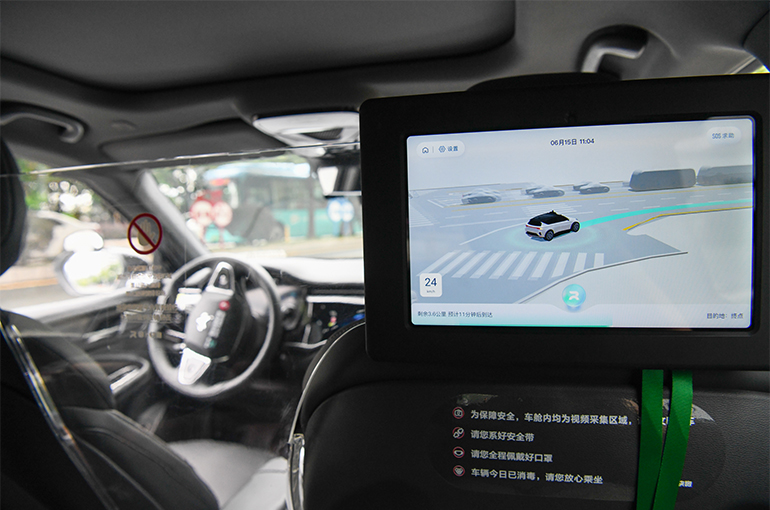 Over 50 Chinese Cities Have Brought Out Rules for Self-Driving, Smart Connected Vehicles
Over 50 Chinese Cities Have Brought Out Rules for Self-Driving, Smart Connected Vehicles(Yicai) Jan. 15 -- More than 50 cities in China, including Beijing and Wuhan, have introduced regulations for autonomous driving and intelligent connected vehicles since Shenzhen became the first city to do so in 2022.
Beijing approved self-driving regulations governing driverless vehicles for personal use on Dec. 31. Wuhan in Hubei province and Hefei in Anhui province have also issued rules that will come into effect in the first half of this year.
In July 2022, Shenzhen in Guangdong province became the first city to release a full set of regulations on smart connected vehicles, clearing the legal obstacles to the sale and use of driverless cars.
In terms of infrastructure, the regulations in Beijing, Hefei, and Wuhan include specific sections requiring new, rebuilt, or expanded roads to integrate with autonomous driving and intelligent roadside infrastructure. On operational management, the rules provide detailed guidelines on testing, demonstration applications, and road traffic for self-driving cars. They also define the responsibilities of various departments and establish standardized management systems.
“The new regulations in cities such as Beijing and Wuhan has made industry professionals, the public, and even some foreign entities and policymakers take note of China's enthusiasm for promoting the use of self-driving technology,” Zhang Li, a professor at the Law School of the China University of Political Science and Law, told Yicai.
Compared with earlier rules in Shenzhen and Shanghai that are mainly about testing, those issued by Beijing and Wuhan are focused on promoting use, said Zheng Fei, another professor at the same institution, adding that this reflects a broader shift in legislation on autonomous driving in China toward its commercial deployment.
Regulations not only provide clear guidance for future research and development but also offer a clear path for testing, application, and commercialization, thereby lowering legal risks, Zheng noted. Moreover, their safety provisions will boost confidence and public trust and pave the way for the widespread adoption and commercialization of self-driving technologies, he said.
However, other experts warned of the need to introduce nationwide rules about the division of liabilities in case of accidents involving driverless cars in the Road Traffic Safety Law and more support measures to facilitate the commercial operation of autonomous vehicles.
Editor: Futura Costaglione